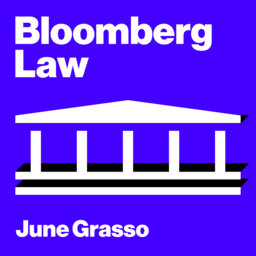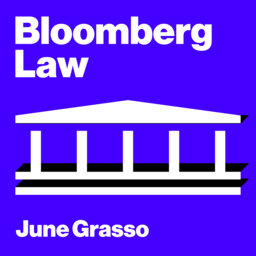TikTok Ban & Boeing Troubles
Eric Goldman, a professor at the Santa Clara University School of Law and co-director of the High Tech Law Institute discusses the House bill that could ban TikTok. Alan Levin, Bloomberg aviation safety reporter, discusses the problems with the accident investigation into Alaska Airlines midair emergency in January. June Grasso hosts.
 Bloomberg Law
Bloomberg Law


